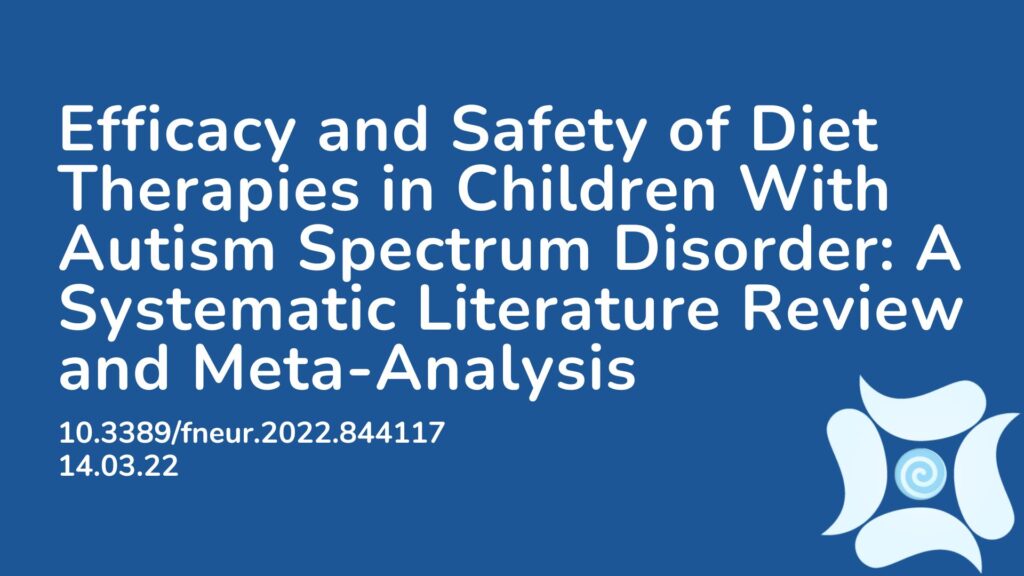Summary: This paper is a systematic literature review and meta analysis of 7 randomised controlled trials that assessed the benefit of dietary interventions in Austism Spectrum Disorder (ASD), such as a gluten free, casein free and ketogenic diet. The analysis concluded that dietary interventions are effective for children with ASD by significantly minimising core symptoms. The gluten free diet in particular showed an improvement to overall social behaviours. Whilst this literature review has yielded positive results, there are still a little number of long term and larger cohort studies that examine these interventions. None the less, dietary intervention has also shown in this review to be safe, even reducing gastroinstestinal discomfort in some participants.
Abstract:
Objective: Autism Spectrum Disorder is a neurodevelopmental disorder, with a rapid increase in recognition over the past decade. Interest in alternative therapies is growing annually, such as dietary therapies including gluten-free and/or casein-free diet, and the ketogenic diet. However, there is no consensus on the efficacy and safety of dietary therapy in children with ASD up to now. This study aimed to assess the efficacy and safety of these diet interventions for children with ASD based on a meta-analysis of global data.
Methods: Seven databases (Cochrane Library, PubMed, EMBASE, Web of Science, VIP, CNKI, and Wanfang) were searched according to the established inclusion criteria, from the inception of the databases to August 18, 2021. The Cochrane Bias risk assessment tool was intended to assess the quality of the included studies. Review Manager 5.4 software was used as an efficacy analysis tool of the included studies, taking the core autistic symptoms and scales of ASD as therapeutic efficacy evaluations.
Results: In total, 7 RCTs with 338 participants were finally obtained. All studies assessed the association between core autistic symptoms and therapeutic diet, showing a statistically significant effect (standard mean difference (SMD) of −0.51, 95% confidence interval (Cl): −0.81 to −0.21), in which two studies which followed the GFD diet reported significant reductions in social behaviors (SMD of−0.41, 95% Cl: −0.75 to −0.06), showing no correlation with the length of the interventions (P < 0.05). Two studies were performed in KD diet suggested a significant effect in core symptoms (SMD of −0.67, 95% Cl: −1.04 to −0.31). No statistically significant changes were observed in the GFCF diet, GFD diet, cognition, communication, and stereotypical behaviors subgroups (all P > 0.05).
Conclusion: The results of a meta-analysis suggest that diet therapies can significantly ameliorate core symptoms of ASD, and GFD diets are conducive to improving social behaviors. Although the results suggest the effectiveness of dietary therapy for ASD, limited by the small sample size of RCTs, more well-designed, and high-quality clinical trials are needed to validate the above conclusions.
Article Publication Date: 14.03.22
DOI: 10.3389/fneur.2022.844117



